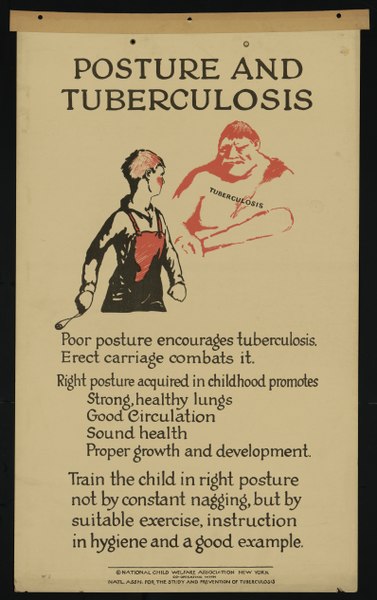 Science Diction is a bite-sized podcast about words—and the science stories behind them. Subscribe wherever you get your podcasts, and sign up for our newsletter.
Science Diction is a bite-sized podcast about words—and the science stories behind them. Subscribe wherever you get your podcasts, and sign up for our newsletter.
It may be hard to believe but only a century ago many people considered tuberculosis to be a “romantic” disease. It is, after all, the illness that carried away poet John Keats and the Bronte sisters; it rang down the final curtain on the lives of Moliere, Voltaire and Chekhov. Music lovers often think of Frederic Chopin trying to compose a nocturne while violently coughing at the keyboard and opera fans hum the final arias of Verdi’s La Traviata and Puccini’s La Boheme, both of which feature heroines struck down by tuberculosis.

The ancient Greeks had a wonderful word to describe the ravages of tuberculosis: phthisis (from the root phthoe), which describes a living body that shrivels with intense heat as if placed on a flame. Hippocrates identified the illness as the most common cause of illness of his era. He thought the disease was hereditary but Aristotle argued that it was contagious in nature. Later, the Romans applied the Latin word consumere, to eat up or to devour, to the malady. This was why our 19th-century predecessors often referred to tuberculosis as consumption, which is precisely what the unchecked infection does; it slowly but surely consumes the lungs and other organs with a passionate and incisive energy.
Tuberculosis, of course, gets its name from the Latin word tuber, which is a botanical term for an underground structure consisting of a solid rounded outgrowth of a stem of a more or less rounded form that bears eyes, or buds, from which new plants may arise. The most familiar example is the potato. The tubercle is a diminutive of tuber and comes from the Latin, tuberculum, or a small swelling. When conducting autopsies of tuberculosis patients, doctors described small, round, firm and white swellings on the surface or within an organ, most typically the lungs. Because of the color of these tubercles, the disease was commonly referred to as the “White Plague.”
Tuberculosis, then, is a combination of both the word tubercle and the Greek suffix -osis, which signifies an abnormal or diseased condition, action, or process. The word made its first appearance in the English language in an 1860 textbook, The Signs and Diseases of Pregnancy by Dr. Thomas Hawkes Tanner, an obstetrician at London’s King’s College Hospital. Although pathologists frequently used the term during the late 19th century, it did not fully replace “consumption” until well after Robert Koch discovered the causative microbe, Mycobacterium tuberculosis, in 1882, and Wilhelm Roentgen’s 1895 discovery of X-rays which allowed physicians to diagnose and track the progression of the disease.
Hardly an antiquated entity, tuberculosis remains a leading cause of death in the world today. One third of the world’s population is infected with the microbe and each year 8,000,000 people contract tuberculosis and 2,000,000 die from it. Although there exist superb antibiotics that can treat and cure this disease, not everyone in the world has access to these drugs. More frightening, inadequate treatment has led to antibiotic-resistant strains of TB which threaten to pull us back into the 19th century when the “White Plague” reigned as the “Captain of the Men of Death.”
Segment Guests
Howard Markel, M.D., Ph.D. is a professor of the History of Medicine at the University of Michigan. An elected member of the National Academy of Medicine, he is editor-in-chief of the Milbank Quarterly and a Guggenheim fellow.
Meet the Producer
About Christopher Intagliata
@cintagliataChristopher Intagliata was Science Friday’s senior producer. He once served as a prop in an optical illusion and speaks passable Ira Flatowese.